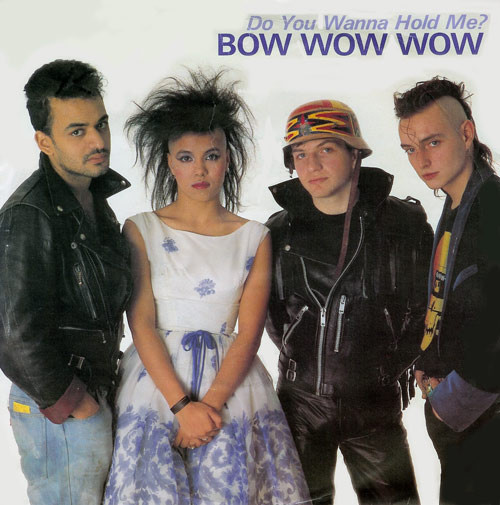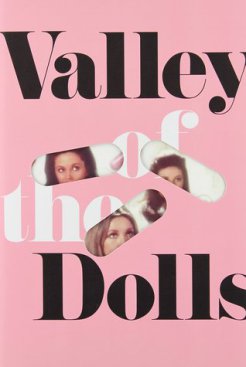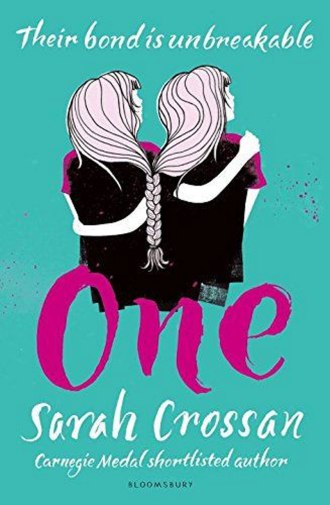
I’m an avid reader. And I seek out a lot of different kinds of material to read. Reading mostly non-fiction, I look for resources that can offer great recommendations or other motivating factors to pick up a book. These include listening to author interviews on National Public Radio, chats with friends, or even book clubs. I’ve been a member of several book clubs. However, the latest one I’m in is facilitated by my community radio station and we read highly engaging critiques on cool music.
For the music book club, I’ve been reading Rip It Up and Start Again: Postpunk 1978-1984 by Simon Reynolds. Published in 2006, Reynolds’ book is a thorough exploration of the music created after punk came and went. A progressive form of rock music that distanced itself from nostalgia-driven punk musicality, postpunk drew from avant-garde ideas, world music, and a DIY aesthetic. Only lasting a few years, postpunk would diverge and develop into other forms such as New Pop, New Wave, and New Romanticism.
Throughout the book, Reynolds spends entire chapters focusing on a particular band, region, and musical style. Whether it is breaking down the Midwestern industrial motif of Pere Ubu, the bleak gothic stylings of Joy Division, or John Lydon’s post-Sex Pistols anti-music of Public Image Ltd., Reynolds’ book is thorough and thoughtful. He frames bands and their geographical upbringing from a historical perspective while also breaking down signature tracks in the poetic fashion only rock journalists know how to write.
While his analysis of songs and their compositional qualities are interesting, a lot of it is flowery descriptors that can be hard to decipher even if you know the song well. Basically, semantics and objective at that. While I enjoy critiques like that, I can only take so much before it becomes boring. Fortunately, the book does provide a historical narrative when explaining musical context.
History provides a great framework for storytelling and I like a splash of narrative in non-fiction reads. I enjoy postpunk and New Wave a lot. They are among my favorite genres of music. And this books has helped further my appreciation. As I’m reading, naturally I enjoy the chapters covering bands that I am very fond of. However, I’m enjoying the exploration of bands I either don’t know well beyond a single (or two) and those I had never heard before. It motivates me to check out those bands or look deeper into their catalogue.
One chapter I found incredibly fascinating was the one about Bow Wow Wow. Of course, I had grown up hearing their cover of “I Want Candy” throughout my entire life. I had heard another song or two in recent years, but not much beyond that. Before Reynolds’ book, I had regarded Bow Wow Wow as a one-hit wonder band and assumed that their history was bland and uninteresting as a result. Oh, how wrong I was.
Malcolm McLaren is the impresario that managed the Sex Pistols. Not only did he have a heavy hand in crafting their delinquent image, he sought ways to make them even more polarizing and repulsive to people. I had been listening to the Sex Pistols since high school and I had always known Malcolm McLaren to be a provocateur which is a classier way of saying that he was a big wanker. Until I read this book, I had no idea of far McLaren would go to be absolutely appalling.
I was amazed to learn that Bow Wow Wow was a McLaren creation much like the Sex Pistols. The band was formed after McLaren encourage Adam and the Ants to ditch their front man and pursue his new music project. Needing a charismatic and captivating lead singer, McLaren recruited the 14-year-old Annabella Lwin.
Initially, the band was put together to carry out McLaren’s vision that music was destined to be disposable background noise. With the arrival of cassette technology, McLaren prophesized that role of music in the future would be removed of its purpose. Before, people would gather in their homes or clubs to listen to music. Now, with the introduction of the caseate and the rise of portable music, McLaren believed music would lose its importance and meaning. To further this, Bow Wow Wow’s first album was initially a cassette only release that nearly tanked the band for having poor audio quality.
In addition to managing a band that would promote McLaren’s vision of music’s decline, he also sought a means to exploit rock’s baser instinct of tribalism and sex. To achieve that, McLaren would coerce Lwin to be photographed nude or be subjected to sexual situations even going so far as encouraging one of the bandmates to deflower Lwin which McLaren believed was the reason why she was so resistant to his deranged and hypersexualized ideas.
McLaren’s fascination with exploiting child sexuality was exclusive to Lwin. He had a whole grand vision to carry out his belief that pop music was pornography for children. So, he set out to use pop music as a medium to use child pornography to titillate adults. TO achieve this, the early Bow Wow Wow songs featured overtly sexual lyrics and Lwin was photographed nude for the band’s promo materials even appearing nude on their second album.
His provocative mindset extended beyond music and into other media. McLaren wanted to create a children’s version of Playboy called Chicken which would be a publication featuring underage boys and girls engaging in pleasure technology. While McLaren persisted that his Chicken publication was designed to be consumed by children interested in becoming adults that were different than their own parents, it is especially troubling considering “chicken” is a pedophile term for children. Some even believed that Bow Wow Wow and Chicken were grand schemes by McLaren to implicate BBC and EMI as child smut peddlers. While much of this material of Bow Wow Wow and the young Lwin were published, Chicken remains in the vaults.
You can imagine how surprised I was to learn about the history of Bow Wow Wow. I had heard “I Want Candy” all my life. It is a fun, catchy pop song. However, knowing their background and especially McLaren’s manipulation of Lwin, the song carries a whole new subversive meaning that makes me a little ill.
Since reading that chapter, I’ve been exploring more of Bow Wow Wow’s short catalog. Though they only released three studio albums, there is a lot of great material. For the last few years, I’ve really enjoyed “Do You Wanna Hold Me?” The song is chaotic and absurd with allusions to California and a demonic Mickey Mouse being as big as a house. It didn’t chart as well as “I Want Candy,” but it is one of their stronger tracks. And given that it was recorded and released on their third and final studio album before breaking up, I would like to think that it was conceived on the tail end of whatever McLaren had planned for them. I would like to be optimistic that, by this time, he was losing interest in the band and not interested in exploiting them as he had before.
Advertisements Share this:




